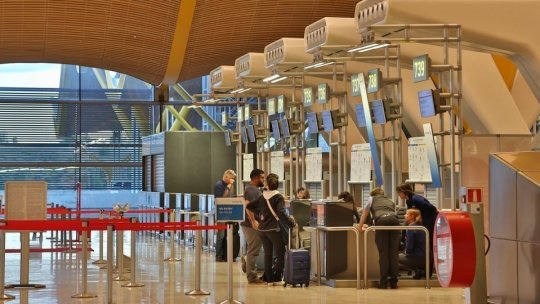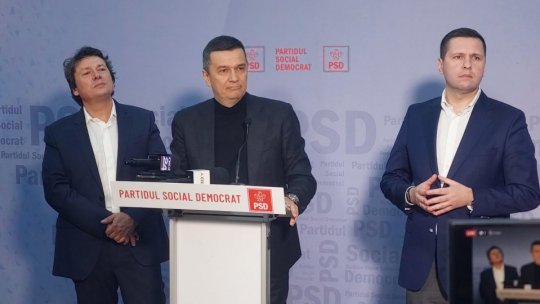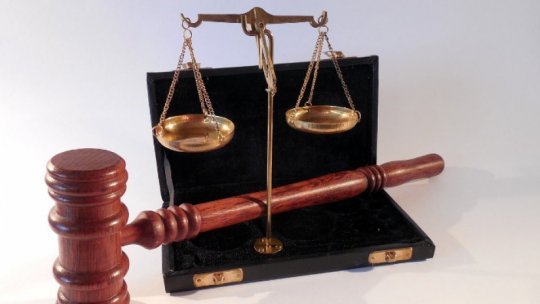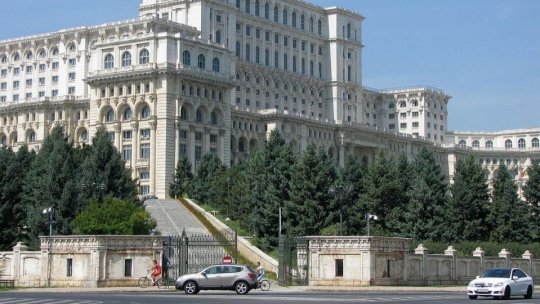RRA Special Guest:French Ambassador Michèle Ramis
Ambassador of France to Romania, Her Excellency Michèle Ramis, has spoken about Bastille Day (National Day of France 14 July), the democratic values and the Franco-Romanian friendship.
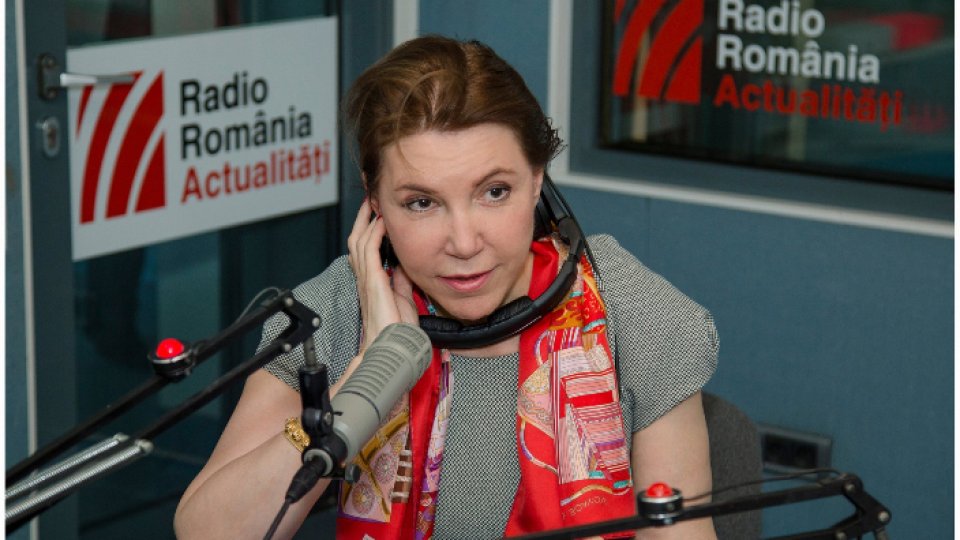
Articol de Radiojurnal, 19 Iulie 2018, 14:12
25th Ambassador of France to Romania, Her Excellency Michèle Ramis, the first woman to hold this position, has recently been the special guest of “10 o’clock Friends” of Radio Romania News (RRA), produced by Ionuț Dragu, and has spoken about Bastille Day (National Day of France 14 July), the democratic values and the Franco-Romanian friendship.
RRA Producer: There are many young people among the nearly 500,000 listeners of radio show “10 o’clock Friends” and I figure it would be important for them to explain the significance of July 14, 1789, a day that deeply marked the history of France and even of modern Europe. Why was 14 July chosen as a National Day of France?
Michèle Ramis: France's National Day is celebrated on this date because it is symbolically one of the great moments of the French Revolution. It is the assault of the Bastille, which was a state prison owned by royalty, the French monarchy. At that time, this fortress, this prison was taken by the people, and the monarchy began to collapse. July 14th is for this reason the National Day of France, the French Revolution started at that time, but it is also a moment in history when a new current of ideas started to develop, a cultural trend. French Revolution is also a turning point for a series of upheavals in France; for example, fall of the monarchy, establishment of the Republic, death of the King, subsequent restoration of the monarchy ... Very important upheavals occurred and it was only in 1870 that the Republic had completely settled in France…
RRA Producer: What does today mean for France and for Europe the three magic words - Freedom, Equality, Fraternity?
Michèle Ramis: Equality ... These are some principles that have been introduced in the 1789 Declaration of Human Rights. Equality means that citizens are all equal, irrespective of their origin, their opinions, their sex, their sexual orientation. Freedom shows that citizens can enjoy their freedom, respecting the freedom of others and respecting the law. But the limitation must not be arbitrary. We are talking today about freedom of the press, freedom of assembly, freedom of political opinion, so this is a value that we want to build the European project on. Fraternity is a moral principle, it is about solidarity with other citizens, always keeping in mind the interest of the other. I believe that these three principles are very current and with time they can be further asserted, not only in European countries, but also within United Nations member states. These three principles are alive today more than ever before.
RRA Producer: How did you get to know Romania? Did this originally happen in a political key or did cultural links played a key role here between the two countries, for example, personalities such as Eugen Ionescu or Emil Cioran, both known in France, were of Romanian origin?
Michèle Ramis: You know, an ambassador is appointed for a short term of three, four years, so you have to go very fast, discover the country, know the people who matter, make friends, know history. So I think I did these altogether at once, I made a plunge into Romania's history, met politicians, right after I have settled here, I welcomed here the President of France. I have traveled a lot in the country, I went to all the counties, to the big cities in Romania and I was able to see how attached the citizens of Romania are ... of France, how much they know our culture. After decades of cultural exchanges - you mentioned the Romanian intellectuals who settled in France, writers, philosophers, poets - we think that France and Romania have a great intellectual intimacy, dating way back, and I think today we are very close within the European Union, because we understand each other very well. I would like to say another thing mentioned by my colleague, the Romanian Ambassador to France (Luca Niculescu, n.a.), referring to the historian and philosopher Mircea Eliade. He said that no culture, no reflection had such an influence on the Romanian culture as the French culture. So we have common roots, and on these common roots my goal is to build a common future for our prosperity and Europe's prosperity.
RRA Producer: Thousands of Romanian students choose large universities in France to study. There are also French young people who come to study in universities in Romania. An important role in this context is also played by the agreement on mutual recognition of diplomas and periods of study in higher education concluded by the two countries as early as 2012. These young people are basically becoming the carriers of values that enrich the relations between the two countries. How do you estimate the impact of this phenomenon in the last years?
Michèle Ramis: University exchanges are very important to know the citizens of other European countries. I am thinking, for example, of the Erasmus system. In Romania, we have2,000 French young people who are here for medicine studies. I think these exchanges are very important to know each other better and to show us the desire to collaborate later on. President Macron spoke in September 2017 at the Sorbonne University, where he said he wanted this culture cement to become the cement of European cluster, so that every young person to be able to study six months in another university at European level to get acquainted with students from other EU countries. It is very important and I hope that there will be more and more French students who will study in Romania and more and more Romanians who will go and study in France. And when these young people start their professional career, they will promote our mutual ambitions and will make us understand each other better.
(..)
RRA Producer: In Bucharest, a good opportunity to enter a bit the French atmosphere is to make a short visit to the French Cultural Institute. How is this summer for the French Cultural Institute?
Michèle Ramis: French Institute has four representations: in Bucharest, Timisoara, Cluj and Iasi. These four institutes disseminate French culture in Romania. The French Institute will continue its activity during the summer, it remains open with cinema and other cultural events. I assure you that in autumn, the Institute will restart its activity at full speed, we will have the Franco-Romanian Cultural Season. You know this Institute in 77 Dacia Boulevard has been closed in 1948 because the ideas that were being broadcasted there were considered dangerous to a certain extent. It remained closed for 22 years, all staff has been expelled, they all left, except for one, Victor, who remained there to ensure guard. Institute has been reopened in 1968, when General de Gaulle came to Romania.
RRA Producer: Ambassador, thank you for accepting our invitation and we are hoping you will join us again on the frequencies of RADIO ROMANIA NEWS!
Michèle Ramis: Thank you very much for the invitation and I too hope I will come here again, to tell you more about the relations between France and Romania and this Cultural Season. Thank you very much!
Source:RRA.Translated by Miruna Matei




